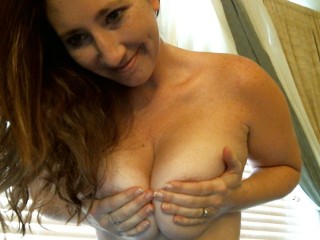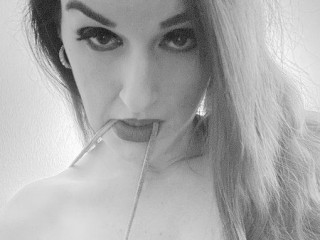Elizabeth L. Wollman grew up in Pittsburgh, but her dad was a New Yorker and she had a lot of family there. They took frequent trips to New York and, as a child, would spend some time in Brooklyn seeing family and then come to Manhattan and see a lot of theater. This was during the 1970s and early 1980s. An early memory of hers was the huge billboard advertising Oh! Calcutta! over Times Square. She really wanted to see it, but was nine or ten, and the answer was always an emphatic “No.”
As an adult, and now assistant professor of music at Baruch College in New York City, she has finally "seen" the infamous musical, if only through her thorough and exhaustive research on the era, and has written the definitive tome on that transitional period on Broadway where experimental theater and a burgeoning hardcore pornographic industry, as well as feminism and the Stonewall gay revolution, brought a new sexuality to mainstream entertainment. That book, Hard Times: The Adult Musical in 1970s New York City (University of Oxford Press), is a must-read for those who love sexy song and dance.
What compelled you to write about adult musicals in 1970’s New York City. Are you old enough to have first-hand experience or are you a musical and nudity and New York City junkie?
I am an ethnomusicologist who specializes in the American musical theater. My first book (The Theater Will Rock: A History of the Rock Musical from Hair to Hedwig) was based on my dissertation, also about rock musicals. So I specialize in the American stage musical, but specifically the genre after around 1950. And I guess that makes me a musical and New York City junkie.
Anyway, while I was writing my dissertation on rock musicals, a friend of a friend of mine sent me a cassette tape of what he termed “really, really bad musicals,” just as a joke. Side A was Nefertiti: The Musical, which apparently opened and closed on the road before it could make it to New York. The B side was excerpts from Let My People Come, which I’d never heard of. I listened, and the original cast recording struck me as the most hilarious, bizarre thing, ever. I had only ever heard of Oh! Calcutta! so the fact that there were other shows like this came as a huge revelation. I started looking around for more, and the idea for the book was born.
Describe how you define “adult theater,” does it have to include nudity, sexually explicit themes, or is there more nuance to your definition?
The term “adult musical” was coined by Jonathan Ward, a collector, archivist, and writer who wrote a piece for an online magazine many years ago about a few of them. He was enormously helpful when I started research, so I was happy to use the term, for which I credit him.
That being said, I did scout around for other terms while I was researching. Because, no, they do not all include nudity or sexually explicit themes, and so in some ways, “adult” is misleading—it implies pornography, which none of these shows are. But in the end, no other term fit as well: all the shows I looked at do feature, at the very least, frank talk about contemporary sex (“contemporary” here=1970s, which is what my book focuses on), so “sex musicals” or “porn musicals” didn’t work well, and “nudie musicals” didn’t either, because not all of them featured nudity or simulated sex. Some just focused on mature themes: the women’s or gay liberation movements, coming out of the closet during the 1970s, sexual identity, etc.
What’s the genesis of adult explicit material making it to Broadway, there had to be a trajectory that started maybe with hippie happenings and moved to experimental off-off Broadway venues before some forward-thinking producer thought they could make money off this trend?
Exactly. Off Off Broadway—the fringe theater in the 1960s—broke a lot of rules and started getting a lot of attention for doing so. There was real interest Off Off in breaking through the conventions that the commercial realm (Broadway and, to some extent, Off Broadway) had long dictated. The Off Off realm became a real hotbed for theatrical experimentalism at the time: breaking the fourth wall, playing around with traditional narrative, making theater more communal and collaborative, erasing the divide between audience and spectator, making theater more socioculturally relevant. In this realm, nudity happened a lot: as one Off Off playwright told me, when he wanted to depict people having sex, he had them take their clothes off, since no one makes love in armor. So there was a real effort Off Off to cut through the bullshit, and the trend got enough notice and enough respect that the commercial realm began to imitate the avant garde.
Was “Hair” the shot heard around the world or just the most popular expression of this genre?
Yes—Hair came out of Off Off Broadway. The playwrights, Jim Rado and Gerry Ragni, were trained actors who were working in the fringe a lot, and decided to write an experimental piece on hippies. The show was picked up by Joe Papp when the Public Theater moved into its current building on Lafayette, and was the inaugural show there. Its presence on Broadway, which was enormously successful, only happened afterward, when a young producer saw it at the Public and secured the rights to it after it closed there.
Do you have a personal favorite adult musical?
I developed a real affection for a lot of them, but the one I worked most with and thus got closest to was Let My People Come, not only because it’s got so much to it, but also because its creator—Earl Wilson, Jr.—was willing to talk with me, as were a number of original cast members.
What was the reaction of adult musical theater by the general public when it first started gaining traction in New York City, where there protests, was it popular, did the audience rip off their clothing and join in?
Adult musicals came along at a time when New York City—and much of the country, really—was reacting to a series of legal decisions that had redefined the term “obscenity,” and in the process made it a lot harder to prosecute. New York—Times Square especially, but not exclusively—was porn central at the time that adult musicals came along. And since adult musicals were comparatively tame (all the sex was simulated, never real, and even the nudity was rarely as copious as you’d see in, say, the porn flick playing down the street or at the peep show a few blocks away), they really didn’t suffer much in the way of protest or public outrage. There was a lot of gossip about Oh! Calcutta! when it was in previews—rumors that the cast would actually be having sex onstage, that sort of thing. But once it opened, and critics wrote that it was really pretty boring, there weren’t really many problems. Also, at least as far as I could determine—there were certainly instances of audience members getting in on the act when it came to some of your more experimental fringe productions by troupes like the Living Theater, but adult musicals were really more mainstream. Most of them functioned as primers for curious audience members wondering what the sexual revolution, the women’s movement, and gay liberation were all about. They were hardly the most risqué entertainments out there, for all their strong sexual content, so not a lot of audience participation in the end.
Was the adult musical a direct reflection of the changing sexual mores of the times or were the times changed by the artists who explored sexually free works on stage, or is there more accurately a give and take between the two?
I think adult musicals were more a reaction to the times—musical theater, like other entertainment forms, often react to and comment on the world around them in some way or another. That being said, the adult musical was influential in the long term—shows like Hair and Oh! Calcutta! certainly set the stage for later, similarly frank shows like La Cage aux Folles and Falsettos and Spring Awakening.
How does focusing on the microcosm of the New York City theater world of the 1970s offer a larger understanding of the popular culture at large?
That’s a tough one because in a lot of ways, New York is sort of left-of-center of much of the rest of the country. That being said, I got the sense that a lot of people, both in New York and across the country, were not as keyed in to the massive socio-sexual changes that were taking place through the 1970s, as the sexual revolution, women’s lib and the contemporary gay rights movement were all very slowly starting to be absorbed into the mainstream. You can’t just suddenly announce major cultural or social shifts and have everyone be completely ok with it immediately. For some people, change happens very slowly, and for some, it doesn’t come at all. So while we like to look back at the sexual revolution as enormously and suddenly transformative, as if the whole country just suddenly started having sex with great frequency, in huge orgies and key parties, it really, really didn’t happen that way. There was a lot of resistance, embarrassment, and fear. If there weren’t—if there STILL weren’t—there’d be total comfort, across the nation, with women, with gay and transgender people, with a much broader range of sexual identities and behaviors than the country is even now slowly starting to accept. In this respect, New York’s commercial theater is a good barometer: it’s mainstream, it is often broad and very gentle in delivering its messages, it’s gradual and subtle—it’s educational for its audiences, who come from all over the world.
In your research, what were some of the more outrageous productions and characters involved in bringing adult sexuality to the stage?
Most of the shows were really pretty tame, frankly—I set out hoping to learn about some seriously warped, crazy, outrageous stories, and there were ultimately very few of them. A lot of these shows, whether they ran for long or not, were professional and cast with actors who took their work pretty seriously. Marilyn Chambers headlined in an adult musical in 1976, called Le Bellybutton, and it was crude and there was a lot of nudity in it, but she wanted it to be a vehicle toward a cabaret career for herself. So…not a lot of raunch, for all the nudity and simulated sex!
Were there any plays that were not just breaking taboos with nudity, but also featured explicit sexual acts?
Again, sorry if this is disappointing—but nope! There was one show that was not a musical—it was an experimental Off Off Broadway play called Che! that ran downtown in the late 1960s that was closed down by the city and brought up on obscenity charges. It featured a lot of simulated sex and scatology and tons and tons of filthy language, and the production team spread the rumor before it began previews that whenever possible, the cast would actually be doing the acts onstage instead of simulating them. But the publicity stunt backfired: the previews were packed, but none of the actors actually did anything they were simulating, but all the rumors caught the attention of the police, which shut down the show. This was about the worst that any live show suffered at the time, but it very likely helped put a cap on anything truly outrageous, at least as far as live commercial theater went.
Is there any connection or cross-pollination between the peep and live-sex shows that populated Times Square at the time and the development of adult theater?
Not really. In fact, there was a point in the mid-1970s when things were so bad in New York—the city was in mid-financial disaster, tourists were staying the hell away, the reputation of the city was at an all-time low—that the theater industry started lobbying the city government to clean up the Times Square area and rid it of all the porn, massage parlors, dirty book stores, and peep shows. At around this time, the producer of Let My People Come, which had been running for years at the Village Gate, decided to move his show up to the Times Square area, which proved to be a terrible mistake not only because it really was a cabaret show that worked best in a bar atmosphere like the Gate, where patrons could drink (and, at the time, smoke) and chat and relax while watching the show. But it was also a mistake because the commercial theater industry was trying to rid the district of porn, and so when Let My People Come moved uptown, there was a great deal of resistance to it simply because it was a sexually-themed show. It closed too quickly for anyone to really go to pieces about it, but still, its message was kind of clear: there’s room for tasteful nudity or simulated sex on Broadway, but not much, and not in a time when the city is falling to hell and there’s just so much smut everywhere.
Are we now living in a time when theater, and popular culture writ large, is adult by default, cannibalizing the movement you write about, or have productions become more conservative and we’re in need of a new adult revolution in theater?
I don’t think we need a new adult revolution—I think we’re still experiencing the after-effects of the one that began in the 1960s and 1970s. I don’t think pop culture has become more conservative per se—I think it always has been conservative, with occasional breakthroughs. The nudity and sex you saw in movies in the 1970s was faddish, sure, and I suppose it could come back, but I don’t know if we need the same kinds of education we got back in the 1970s, as a nation. In some ways, we’re a lot more comfortable in our skins, by and large, than we were back then—there’s certainly more acceptance about certain aspects of human sexuality than there was back then, when things like oral sex were still totally risqué and only barely not taboo subjects. That being said, I do think we’re sliding backwards when it comes to women’s issues. So maybe we just need a fourth wave, at this point.
Lastly, and most importantly, have you or would you like to perform in an adult musical?
I never had, and while I suppose I’m pretty comfortable in my own skin, I’m not terribly interested in sharing my skin with the world, or even with a small audience, no.
Buy "Hard Times: The Adult Musical in 1970s New York City" by Elizabeth L. Wollman here!






















